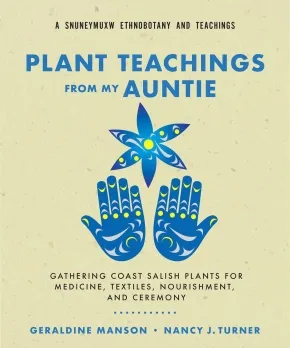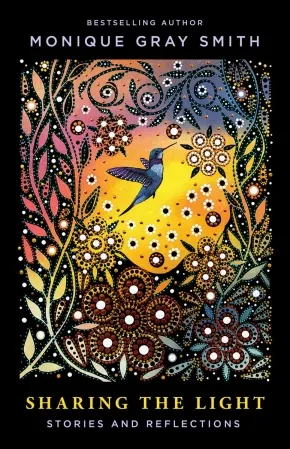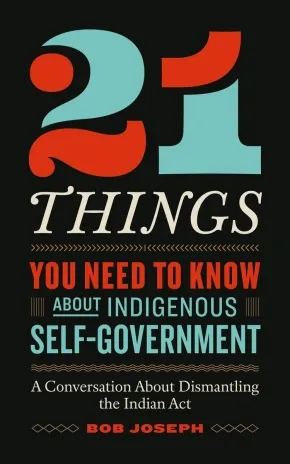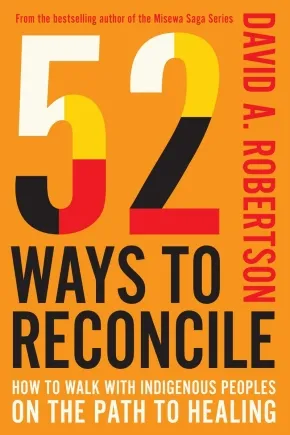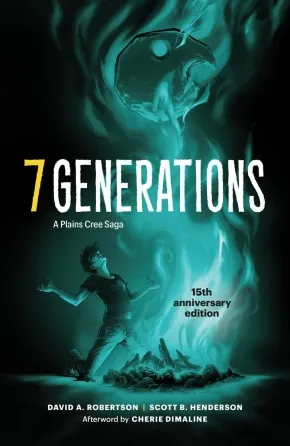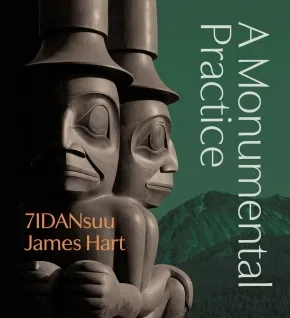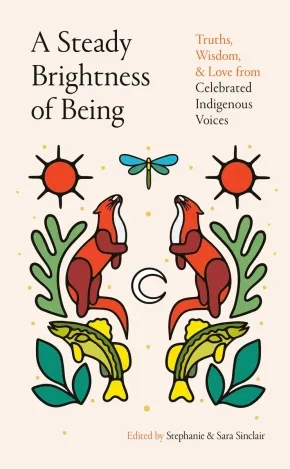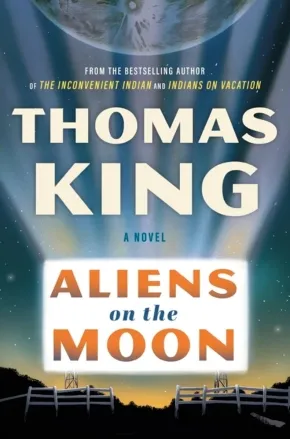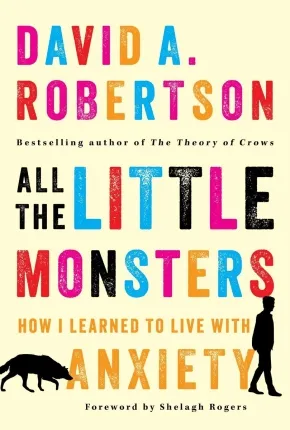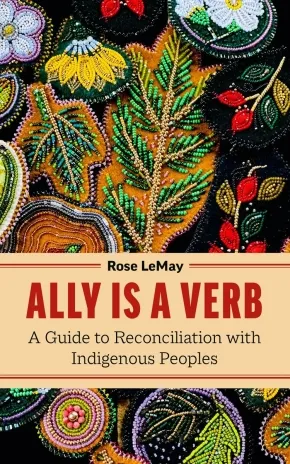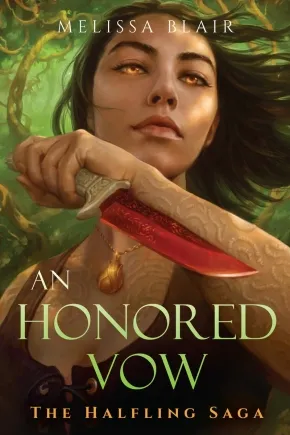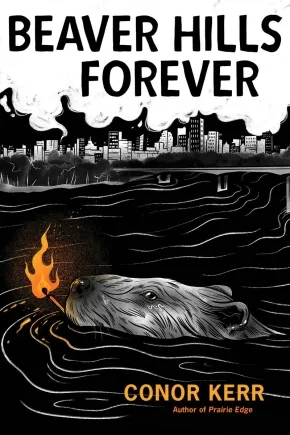Indigenous Peoples in Canada
Synopsis:
A Snuneymuxw ethnobotany guide grounded in Indigenous knowledge and deep ancestral connection to the land.
Plant Teachings from My Auntie: Gathering Coast Salish Plants for Medicine, Textiles, Nourishment, and Ceremony is a richly illustrated compendium of the many culturally significant wild foods and herbal remedies found in the traditional territory of the Snuneymuxw First Nation.
Each entry features plant descriptions complete with both their Hul'q'umi'num and botanical names, typical native habitat, and traditional uses. Particular attention is paid to the sacred Western Red Cedar or "tree of life." The book also offers a selection of healing recipes; tips for respectful, sustainable harvesting; ethical and responsible preparation techniques; and a guide to local gathering sites.
Snu'y'ulh refers to teachings handed down through generations. Snuneymuxw Elder and Knowledge Keeper Geraldine Manson, whose traditional name is C'tasi:a, draws on the sacred knowledge passed on to her by her "Auntie Ellen," Dr. Ellen White, also known as Kwulasulwut. Central to these learnings is the fundamental concept or protocol of honoring gifts from the land by gathering and preparing in ways that respect the history, culture, spirituality, and Indigenous knowledge associated with each species.
This powerful work is a rare treasure that will appeal to those seeking to foster greater cultural understanding and ecological responsibility while deepening their commitment to meaningful reconciliation.
Additional Information
96 pages | 9.00" x 7.50" | Paperback
Synopsis:
Uplifting stories, vignettes, and reflections to inspire gratitude, love, joy, and hope in navigating life in a changing, challenging world.
This beautiful and welcoming book can be read cover to cover or used as a daily source of guidance, providing gentle wisdom that inspires and empowers. Through the lens of five transformative practices - gratitude, love, joy, happiness, and hope - bestselling author Monique Gray Smith weaves together short stories, poignant reflections, and thoughtful questions that invite readers to pause and reconnect with their inner light. And as an Indigenous author, Monique brings her cultural wisdom and unique perspective to each offering.
Sharing the Light is a powerful reminder that when we embrace our light and share it with the world, that energy not only transforms us but ripples out to uplift everyone around us.
Additional Information
208 pages | 5.00" x 7.75" | Hardcover
Synopsis:
The history and ecology of the Skeena River region in the Pacific Northwest is characterized by a complex landscape of interwoven phenomena, driven by biophysical and cultural changes over millennia. Combining archaeological, botanical, and historical research, together with first-hand accounts provided by Gitselasu knowledge holders, this book critically assesses and debunks settler colonial narratives of a wild and untouched landscape in northwestern British Columbia. By focusing on people-plant interactions and landscape changes through time, Silm Da’axk offers insights into the diverse and bustling territories of Gitselasu Ts’msyen. Augmenting these discussions is a vividly illustrated guide to the plants that grow in the region.
From the middle Skeena River to the coast, along creek beds and into alpine meadows, Gitselasu continue to thrive, representing one of the oldest and longest enduring Ts’msyen Nations. Tapping into historical knowledge of the laws (adawx) surrounding plant use and territory ownership, this book highlights the intricate relationships that exist among people, places, and plants.
Educator Information
Gitselasu Knowledge Holders include the many teachers and Elders who contributed to this book, including Wilfred Bennett, Amy Bevan, Mel Bevan, Geneva Mason, Alfie McDames, Isabelle McKee, CJ Nabess, Pat Squires, and countless others. This collaboration was guided by the Kitselas Lands and Resource Department, stewards of Gitselasu lands and waters.
Subjects: Archaeology, Canadian History, Indigenous History, Geography and Landscape, Indigenous Studies.
Additional Information
376 pages | 5.50" x 8.50" | 80 colour illustrations | Paperback
Synopsis:
The groundbreaking Indigenous style guide every writer needs.
The first published guide to common questions and issues of Indigenous style and process for those who work in words and other media is back in an updated new edition. This trusted resource offers crucial guidance to anyone who works in words or other media on how to work accurately, collaboratively, and ethically on projects involving Indigenous Peoples.
Editor Warren Cariou (Métis) and contributing editors Jordan Abel (Nisga’a), Lorena Fontaine (Cree-Anishinaabe), and Deanna Reder (Cree-Métis) continue the conversation started by the late Gregory Younging in his foundational first edition. This second conversation reflects changes in the publishing industry, Indigenous-led best practices, and society at large, including new chapters on author-editor relationships, identity and community affiliation, Two-Spirit and Indigiqueer identities, sensitivity reading, emerging issues in the digital world, and more.
This guide features:
- Twenty-two succinct style principles.
- Advice on culturally appropriate publishing practices, including how to collaborate with Indigenous Peoples, when and how to seek the advice of Elders, and how to respect Indigenous Oral Traditions and Traditional Knowledge.
- Terminology to use and to avoid.
- Advice on specific editing issues, such as biased language, capitalization, citation, accurately representing Indigenous languages, and quoting from historical sources and archives.
- Examples of projects that illustrate best practices.
Additional Information
208 pages | 5.50" x 7.50" | Paperback
Synopsis:
From the bestselling author of 21 Things™ You May Not Know About the Indian Act comes a powerful new book on dismantling the Indian Act and advancing Indigenous self-governance.
Bob Joseph’s 21 Things™You May Not Know About the Indian Act captured the attention of hundreds of thousands of Canadians by shining a light on the Indian Act and the problems associated with it. In that book, readers learned that the Consolidated Indian Act of 1876 has controlled the lives of Indigenous Peoples in Canada for generations, and despite its objective to assimilate Indians into the economic and political mainstream, it has had the opposite effect: segregation. They live under different laws and on different lands.
People came away from that book with questions such as "Can we get rid of the Indian Act?" and "What would that look like? Would self-government work?" These are timely questions, given that 2026 will mark 150 years since the Consolidated Indian Act of 1876. The short answer to these questions is, yes, we can dismantle the Act, and there are current examples of self-government arrangements that are working.
With his trademark wisdom, humility, and deep understanding, Bob Joseph shows us the path forward in 21 Things™ You Need to Know About Indigenous Self-Government: A Conversation About Dismantling the Indian Act, in which Indigenous self-governance is already happening and not to be feared—and negotiating more such arrangements, sooner rather than later, is an absolute necessity.
21 Things™ You Need to Know About Indigenous Self-Government: A Conversation About Dismantling the Indian Act is a call to action. Join the conversation now.
Additional Information
200 pages | 5.00" x 8.00" | Paperback
Synopsis:
From bestselling author of the Misewa Saga series David A. Robertson, this is the essential guide for all Canadians to understand how small and attainable acts towards reconciliation can make an enormous difference in our collective efforts to build a reconciled country.
52 Ways to Reconcile is an accessible, friendly guide for non-Indigenous people eager to learn, or Indigenous people eager to do more in our collective effort towards reconciliation, as people, and as a country. As much as non-Indigenous people want to walk the path of reconciliation, they often aren’t quite sure what to do, and they’re afraid of making mistakes. This book is the answer and the long overdue guide.
The idea of this book is simple: 52 small acts of reconciliation to consider, one per week, for an entire year. They’re all doable, and they’re all meaningful. All 52 steps take readers in the right direction, towards a healthier relationship between Indigenous and non-Indigenous people and a time when we are past trauma. By following these steps, we can live in stronger and healthier communities equally, and respectfully, together.
Additional Information
224 pages | 5.00" x 8.00" | Hardcover
Synopsis:
From the bestselling author of The Misewa Saga and When We Were Alone, comes 7 Generations: A Plains Cree Saga. This epic series of young adult graphic novels follows one Cree family over three centuries and seven generations.
Edwin, a Cree teenage boy, is struggling to feel connected to his family and his identity. From stories shared by his mother, Edwin learns about the history of his family, through the years of war, a smallpox epidemic, and residential schools, all the way through to the present and the conflicts Edwin faces in his own life.
Edwin must confront the past to heal in the present—but can his father, scarred by his own residential school experience, heal in time to help Edwin?
This special 15th anniversary edition brings together all four titles in the 7 Generations series, recoloured and relettered, with a preface from author David A. Robertson and an afterword from bestselling author Cherie Dimaline.
Educator Information
Recommended for ages 15 to 18.
Includes the stories in the 7 Generations series.
Stone introduces Edwin, a young man who must discover his family’s past if he is to have any future. Edwin learns of his ancestor Stone, a young Plains Cree man, who came of age in the early 19th century. When his older brother is tragically killed during a Blackfoot raid, Stone, the best shot and rider in his encampment, must overcome his grief to avenge his brother’s death.
In Scars, the story of White Cloud, Edwin's ancestor, is set against the smallpox epidemic of 1870-1871. After witnessing the death of his family one by one, White Cloud must summon the strength to find a new home and deliver himself from the terrible disease.
In Ends/Begins, readers learn about the story of Edwin’s father, and his experiences in a residential school. In 1964, two brothers are taken from the warm and loving care of their grandparents, and spirited away to a residential school. When older brother James discovers the anguish that his brother is living under, it leads to unspeakable tragedy.
In The Pact, the guilt and loss of James’s residential school experiences follow him into adulthood, and his life spirals out of control. Edwin, mired in his own pain, tries to navigate past the desolation of his fatherless childhood. As James tries to heal himself he begins to realize that, somehow, he must save his son’s life—as well as his own. When father and son finally meet, can they heal their shattered relationship, and themselves, or will it be too late?
Additional Information
144 pages | 6.50" x 10.00" | Paperback
Synopsis:
Ask Haida artist and hereditary chief 7IDANsuu James Hart how long it took him to master the art of carving, and he'll tell you: "Around ten thousand years."
Hart has achieved national prominence and international acclaim for his towering poles, stately cedar sculptures, and massive bronzes - monumental works that extend the long continuum of Haida visual traditions into powerful new forms. Since his early days assisting Robert Davidson and Bill Reid, through his reproductions of historical Haida poles and his carving of original house front, story, and memorial poles for private commissions and clan-based contexts in Haida Gwaii and beyond, he has developed an innovative practice rooted in tradition, and widely celebrated: thousands of people gathered to witness the raising and activation of his Reconciliation Pole; his Three Watchmen bronzes overlook the Audain Art Museum, National Gallery of Canada and the Plains of Abraham; and The Dance Screen (The Scream Too) in Whistler is considered a once-in-a-generation sculptural masterpiece.
This, the first publication devoted to Hart, is both a survey of his major career achievements and a document of an impossible-to-assemble exhibition. Alongside hundreds of photos of nineteen monumental works and associated smaller carvings and bronzes scattered across North America and Europe, and drawing on over two years of interviews with the artist, Curtis Collins illustrates how key animal and supernatural figures reappear across scales and mediums, from jewellery to sixty-foot poles (the "backbone" of his practice), and speaks to the associated activation ceremonies as integral to Haida monumental art. Wade Davis considers Hart's expressions of Haida resilience within the people's long history, from time immemorial to the nation's present-day efforts towards national sovereignty; Gwaliga Hart offers a personal perspective on his father's work; and in an autobiographical essay the artist himself reflects on his life, and his life's work.
Educator Information
Contributors:
- Gwaliga Hart
- Wade Davis
- Michael Audain (foreword)
Additional Information
256 pages | 10.25" x 11.25" | 200 colour photographs | Hardcover
Synopsis:
Bringing together voices from across Turtle Island, a groundbreaking collection of letters from Indigenous writers, activists, and thinkers—to their ancestors, to future generations, and to themselves.
Drawing on the wisdom and personal experience of its esteemed contributors, this first-of-its-kind anthology tackles complex questions of our times to provide a rich tapestry of Indigenous life, past, present, and future. The letters explore the histories that have brought us to this moment, the challenges and crises faced by present-day communities, and the visions that will lead us to a new architecture for thinking about Indigeneity. Taking its structure from the medicine bundle—tobacco, sage, cedar, and sweetgrass—it will stir and empower readers, as well as enrich an essential and ongoing conversation about what reconciliation looks like and what it means to be Indigenous today.
Contributors: Billy-Ray Belcourt, Cindy Blackstock, Cody Caetano, Warren Cariou, Norma Dunning, Kyle Edwards, Jennifer Grenz, Jon Hickey, Jessica Johns, Wab Kinew, Terese Marie Mailhot, Kent Monkman, Simon Moya-Smith, Pamela Palmater, Tamara Podemski, Waubgeshig Rice, David A. Robertson, Niigaan Sinclair, Miss Chief Eagle Testickle, Zoe Todd, David Treuer, Richard Van Camp, katherena vermette, Jesse Wente, Joshua Whitehead.
Additional Information
192 pages | 5.50" x 8.25" | Hardcover
Synopsis:
This thrilling conclusion to the Algonquin Quest series ends the Anishinaabe peoples' fifty-year odyssey from the east coast of Turtle Island to the mysterious shadow of the Rocky Mountains.
Algonquin Legacy starts out fifteen years after the Battle of Crow Wing River where the combined allies of the Anishinaabe had fought the powerful Lakota nation in the Lakota homelands. The battle ended abruptly when there was a solar eclipse - an actual event that took place on July 16, 1330, from 1:03 to 3:10 p.m., in the area where they were fighting. The warriors on both sides thought it was an omen and retreated.
When the Anishinaabe returned to their village the decision was made to go towards the western sun to settle. This decision came at great cost to the surviving family of the late Omàmiwinini (Algonquin) leader Mahingan. His son, daughter, and the great Mi'kmaq warrior Crazy Crow, went to the west with the Anishinaabe. Mahingan's wife and nephews, along with their wives, friends, and Mahigan's brother, Mitigomij, the greatest warrior of them all, who was also a shape shifter, travelled back to their homelands along the Kitcisìpi Kitchi (Ottawa River), splitting up the very strong family.
Educator Information
Recommended for ages 12 to 15.
This is the fourth book in the Algonquin Quest series.
This novel continues on in the tradition of the previous three with Native languages in the vernacular, teachings about the culture of that era, hunting practices and how they lived day to day. Life before the Europeans, before the Four Horsemen of the Native Apocalypse came into their lives; Disease, Alcohol, Guns and Religion.
Additional Information
318 pages | 5.50" x 8.50" | Paperback
Synopsis:
From the #1 bestselling and award-winning author of Indians on Vacation, a witty and wry novel set in a small Ontario town where all is seemingly ordinary except for one thing—aliens have landed on the moon
In Thomas King’s new novel, the citizens of a small Ontario town face life-changing decisions. Bria’s grandmother asks her to take her great-grandmother’s rosary to Edmonton and return it in person to the pope. When she flings it into the lake, the rosary somehow hits the pope on the cheek, thousands of kilometres away. It is the same rosary. How is this possible? Thea is furious at her son for putting her in an old-age home. She should have had a daughter. A daughter would never have forced her from her home. Darlene is mixed up with the no-good petty thief Billy. When she ends up in the hospital, she finds Thea’s fanny pack on the floor. Darlene needs the $265 tucked inside, but she also wants a reward for returning the fanny pack. Herb has bought the drive-in movie theatre on the edge of town and has turned it into his home. He watches movies on the big screen while treating the parking lot as his personal driving range. Should he travel west to see his family on the reserve? Nico has a Subaru whose battery keeps failing, but there are no replacements in North America. Gary and Brenda from the dealership are having an affair. Richard wants to set up a dating profile but has no cell phone.
Just the stuff of ordinary life except for one thing: Aliens have landed on the moon. They are watching Earth and earthlings. What is their plan? With the arrival of the aliens, ordinary life is upended in ways that are both hilarious and revealing. While some people fear the aliens’ three-part mandate to save the planet (which might have been written by a grade 9 student in the US), others think the arrival of the aliens is a golden opportunity for a deep discount weekend at Costco that could possibly rival Amazon’s Black Friday.
Additional Information
272 pages | 6.00" x 9.00" | Hardcover
Synopsis:
With humour, warmth and heartbreaking honesty, award-winning author David A. Roberston explores the struggles and small victories of living with chronic anxiety and depression, and shares his hard-earned wisdom in the hope of making other people’s mental health journeys a little less lonely
From the outside, David A. Robertson looks as if he has it all together—a loving family, a successful career as an author, and a platform to promote Indigenous perspectives, cultures and concerns. But what we see on the outside rarely reveals what is happening inside. Robertson lives with “little monsters”: chronic, debilitating health anxiety and panic attacks accompanied, at times, by depression. During the worst periods, he finds getting out of bed to walk down the hall an insurmountable task. During the better times, he wrestles with the compulsion to scan his body for that sure sign of a dire health crisis.
In All the Little Monsters, Robertson reveals what it’s like to live inside his mind and his body and describes the toll his mental health challenges have taken on him and his family, and how he has learned to put one foot in front of the other as well as to get back up when he stumbles. He also writes about the tools that have helped him carry on, including community, therapy, medication and the simple question he asks himself on repeat: what if everything will be okay?
In candidly sharing his personal story and showing that he can be well even if he can’t be “cured,” Robertson hopes to help others on their own mental health journeys.
Additional Information
272 pages | 6.00" x 9.00" | Paperback
Synopsis:
Your next step on the journey of reconciliation starts here.
What can you do to be a better ally for your Indigenous colleagues, community members, and friends? By actively listening to the history and current lived experiences of Indigenous peoples, you can take steps to address the inequities they continue to face. Author Rose LeMay notes that if you continually educate yourself, you will see many opportunities to be an ally.
This insightful book suggests how to enter the field of reconciliation in a good way, in your community and your workplace. You will learn:
-more about the true history shared by Indigenous peoples and colonial governments
-why reconciliation is mostly the responsibility of non-Indigenous people
-approaches to intervene when you see racism happening
-better ways to respond to emotions that come up when doing the work of an ally
-how to be an active team player for equity and inclusion
LeMay describes key principles to promote reconciliation, deepen your practice of allyship, and contribute to meaningful change.
Additional Information
200 pages | 5.00" x 8.00" | Paperback
Synopsis:
This thrilling romantasy about king’s Blade, Keera, and her epic quest to avenge her lover, save her people, and bring down a tyrant king is the final installment of Melissa Blair’s highly acclaimed series. The Halfling Saga showcases BIPOC and queer representation, love, passion, betrayal, magic, and great battles of the sword and the soul.
“Your land is not the one you take; it is the one you die for.”
Keera has tried to keep her final promise to Brenna, the partner she was forced to kill to save a kingdom—but that promise has led to the most difficult struggles of her life. She’s been at war with her worst self while battling King Damien for the freedom of the Halflings, and she’s lost too many along the way. But when she finally breaks the last seal, unleashing the Fae magic that’s been hidden away for hundreds of years, the conflict seems to be turning in the Halflings’ favor.
Meanwhile, Keera’s discovery of a staggering secret about her lover and the kidnapping of one of her closest allies threatens to tip her back into darkness, but she has no time to rest. Opening the kingdom’s magical seals has transformed Keera in ways even the wisest Fae elders could not have anticipated, and the return of an evil thought long vanquished throws their rescue plans into chaos. And with the kingdom’s Halfling population suddenly posing a risk to the crown, the land is plunged into violence as the king begins a new blood purge. Keera and her allies must gather an army to meet Damien’s forces in a final confrontation of epic—and tragic—proportions.
The stunning conclusion of BookTok sensation Melissa Blair’s epically romantic series will leave readers breathless as Keera fights for her land, her people, and the promise of a better world.
Reviews
"[F]illed with high-stakes action, choices, and consequences... Romantasy fans should add this series to their reading list." —Library Journal
Educator & Series Information
Young adult/new adult fantasy series recommended for ages 18+.
This is the final book in The Halfing Saga.
Additional Information
432 pages | 6.00" x 9.00" | Paperback
Synopsis:
An irreverent and playful novella of Metis voices that reflects the complexities of contemporary prairie life
Conor Kerr's 2024 novel Prairie Edge was a finalist for both the Giller Prize and the Atwood Gibson Writers' Trust of Canada Fiction Prize. His latest book, Beaver Hills Forever, takes a riotous, uncompromising look at the intertwined lives of four characters, each an abstract expression of the few paths available to Metis people on the Prairies. In alternating poetic verses, Buddy, Baby Momma, Fancy University Boy, and Aunty Prof share their inner dreams, hardships, delusions of grandeur, and existential plights. While the messy day-to-day is created by their own doing, the lives of these four individuals are doubly compromised by Canada's colonial education system and resource extraction industries.
A beguiling and genre-bending work, Beaver Hills Forever offers a moving, necessary exploration of education, labour, and the dynamic, ever-changing bonds that bring us back to each other. Here is a diverse, funny, pitch-perfect chorus of voices that rings loud and true over the wide prairie landscape.
Reviews
"Not every Metis kid / Needs a sad story," says a character in Conor Kerr's propulsive and deeply entertaining new work, where each bone-clean sentence holds a galaxy of stories in its marrow. Kerr is part of a vital contemporary movement that is reimagining what our literatures can be and what they can do. Beaver Hills Forever is a reminder that laughter and passion are as much a part of the narrative as struggle. In these pages, you'll find voices that demand to be heard, felt, and remembered." — Carleigh Baker, author of Last Woman and Bad Endings
"Much like his prose, Conor Kerr's Beaver Hills Forever imbues the language of everyday Indigenous life with a poetic charm that is just incredibly readable and relatable. This book is truly multitudinous: a love story, an anti-love story, a critique of neoliberalism, an ode to the Prairies, and, above all, proof that even our smallest desires are worthy of sustained poetic consideration." — Billy-Ray Belcourt, author of Coexistence
"Beaver Hills Forever is full of raunch and riot. Conor Kerr's ability to gravitate around the embodied truths of institutional whiteness, class, settler colonization, and the Indigenous (Metis) experience in the moraine of amiskwaciy is rebellious in its desire to not pathologize or rationalize the violent backdrops of its animate setting. With his skilled hand, Kerr makes sure there is "room for [all] in the digital economy of the Future." — Joshua Whitehead, author of Jonny Appleseed
"Aho, fancy reader! Welcome to Conor Kerr's Beaver Hills Forever. We'll laugh, we'll cry. We'll smoke, we'll die. Etc, etc. Beaver Hills Forever is funny, heartfelt, poetic, badass. It's Bald Boy, Goodbye, Sad Story, Indigenous Canon. Etc, etc. Magpie cackles, Metis literatures, Aunty Prof wonders, realizes, smudges, feel-good energy. Fuck all the ongoing bullshit internal politics and academic distortion and just hear the truth, etc, etc." — Jordan Abel, author of Empty Spaces and NISHGA
Additional Information
88 pages | 6.00" x 9.00" | Paperback

